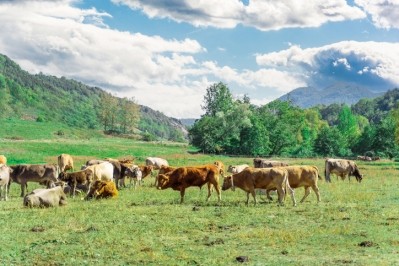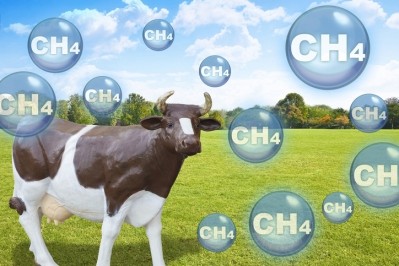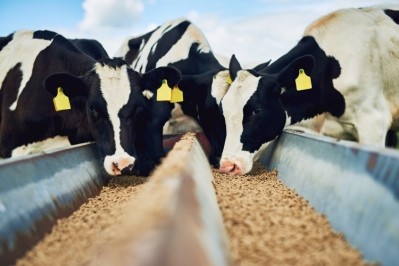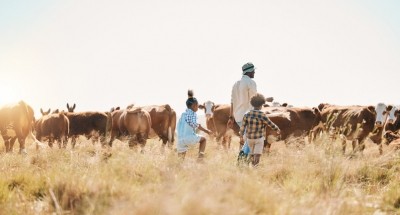Danone ramping up efforts to curb enteric methane emissions
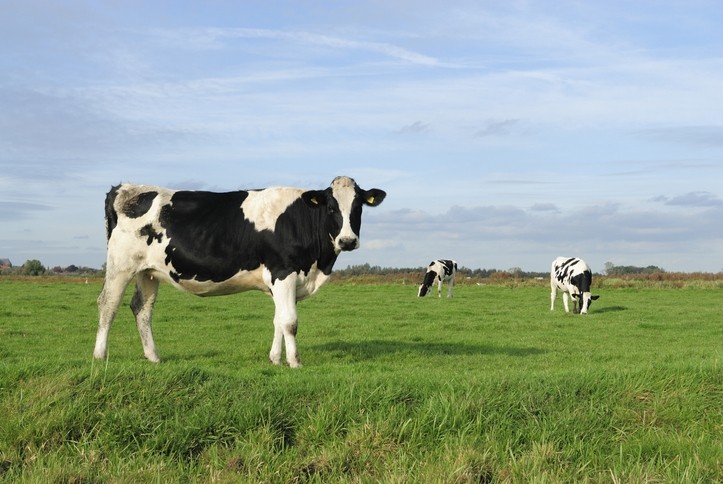
Acting now to reduce methane emissions will provide immediate benefits to the climate that carbon dioxide reductions cannot achieve on their own, said Danone.
The Global Methane Hub (GMH) was set up to fund pioneering efforts to reduce methane emissions. Since its launch, the organization has raised over $300m including $200m from climate philanthropic organizations.
Its R&D Accelerator was established to invest in research and innovation focused on new scalable and practical methods for livestock farmers to mitigate enteric fermentation.
Danone would not disclose the amount it is investing in the accelerator, but says it will work, via that partnership, with academic experts and technology providers to test solutions that support dossier building for regulatory approvals and that drive farming innovation in multiple countries.
“We will set up long farm term trials to ensure safety and efficacy is measured consistently and to collect data. Working with these experts will also ensure that trial set up, data collection and results are representative of different farming types and can be broadly applied,” Anco Van Schaik, agriculture and plant-based director, Danone, told FeedNavigator.
Farm system innovation will take different forms, depending on the local context, he continued.
Innovation along the lines of an animal diet app providing feed advice to farmers is envisaged. Such a tool could have the potential to improve the health and output of cows and therefore reduce total methane emissions, said Van Schaik.
In geographies where farmers already have access to technology and cows are more efficient, the approach would focus more on the use of methane blocking feed additives, he added.
Methane accounting tool
In addition to its work under the accelerator, Danone is collaborating with the GMH on the development of a methane accounting and feed optimization decision support platform for dairy cattle. This will involve the food company's smallholder dairy farms in North Africa, with a pilot project in Morocco, involving 1,000 farmers, kickstarting the initiative.
The tool, which will be developed in collaboration with local universities or research institutions, will help farm advisors formulate dairy diets based on local raw materials.
"The main goal of the project is to demonstrate the benefits of improved livestock nutrition in terms of enhancing animal productivity, increasing farmers' income, and reducing methane emissions," explained Van Schaik.
The team will create a library documenting the nutrient composition of feed ingredients used by dairy farmers.
"We will develop a nutrient requirement model calibrated to cattle in Morocco that will use information from the feed library, combined with information on animal characteristics and methane prediction equations to optimize the feed ration."
Several prediction models based on extensive data have already been developed by a consortium of international researchers and these will be integrated into the platform, said Van Schaik.
"Seventy percent of agriculture driven methane emissions come from enteric fermentation, making it the largest single source of methane emissions of any sector. Through scaled up investment from philanthropy, governments, and the private sector, we can accelerate progress in developing practical innovative solutions and create the scale and coordination needed for these solutions to be impactful, ensuring greater economic and food security for local communities."
- Marcelo Mena, chief executive officer, GMH
Manure management
Beyond the GMH initiatives, Danone has been investing in projects to curb manure related methane emissions in Spain, Belgium, and the US.
Danone Ecosystem, Danone Belgium- and local partner, VCM, created the Wings project to advise and support farmers on manure management and its optimization to limit emissions. It also helped farmers identify financing solutions, fostered knowledge transfer, facilitated the purchasing of pocket biodigesters and the implementation of the project’s models. In the US, Danone North America has funded a variety of infrastructure projects across dairies of different sizes and in different growing climates, with the idea of improving manure management while also exploring manure as a more efficient alternative to synthetic fertilizer.
The company is also conducting research and trials on methane inhibitors such as Bovaer which is deployed on Belgium farms, while the corporate, through its venture arm, is also backing Symbrosia, a start-up developing a seaweed-based feed additive targeted at enteric methane reduction.
Targeting a reduction in absolute methane emissions from its fresh milk supply chain by 30% by 2030 against a 2020 baseline, Danone noted how fresh milk represents roughly 70% of its methane emissions. “Globally speaking, we aim to remove 1.2m tons of CO2 eq of methane emissions by 2030.”
